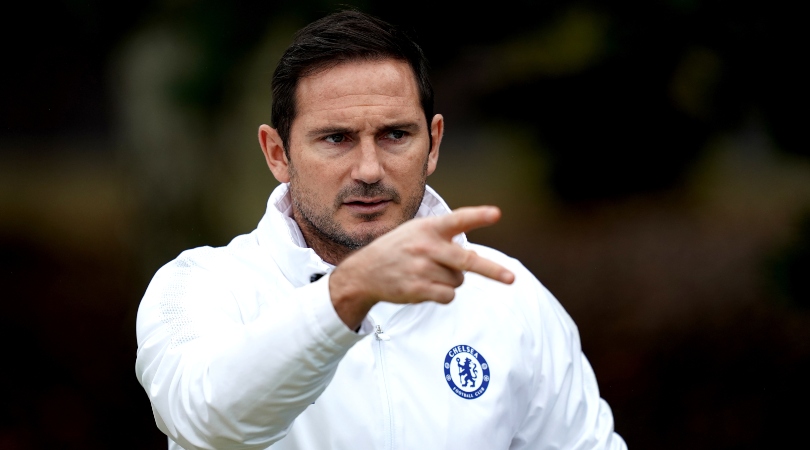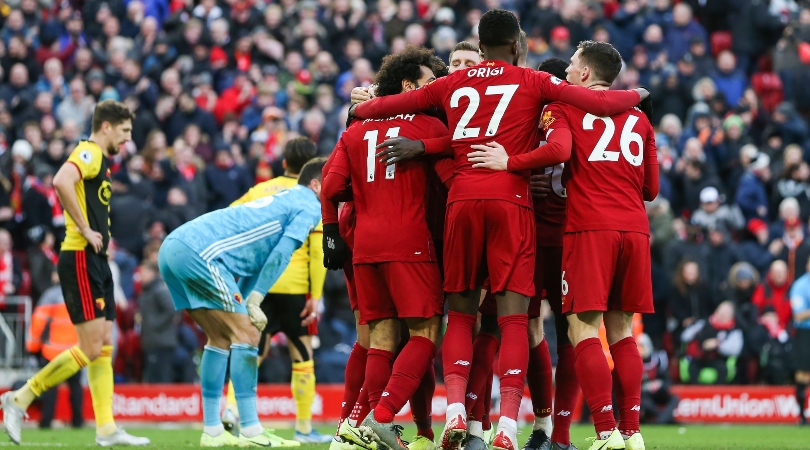Chelsea's slump reveals something new about the club: the manager is finally in charge
Under Roman Abramovich, the Blues have been defined by player power. Lampard's response to recent defeats show that is no longer the case

One of the liberties Frank Lampard has as Chelsea’s head coach is beginning to reveal itself. Speaking after Saturday’s loss to Bournemouth, Lampard was blunt in his assessment.
“In front of our home fans it's clear now that we're not playing well enough, not getting enough results. We just didn't get the fans excited enough. The fans shouldn't be excited if we're going to play 10 balls across the back four, they shouldn't be. And that's not the team I want to manage.
And some responsibility is on the players to excite them, to have the personality and have the balls to take the ball in an area and beat someone or play forward. We need more urgency in our play, if you're transferring the ball, transfer it quickly. If you're playing through the lines, if you're an attacking player, get at people, do things that are positive, don't play safe. We play generally too safe through the game."
He was annoyed. Whether that comes across in the quotes or not, his irritation was plain to anyone who was in that press conference. Which, in itself, felt unusual, because we’ve grown used to Chelsea managers holding back in that situation, tempering their frustration with the understanding that wearing it too publicly rarely ends well.
Lampard the coach is now under the first strains of pressure. Performances over the last six weeks have been unordered and ineffective and, at the time of writing, Chelsea’s advantage over Tottenham and the other sides chasing the top-four is dwindling. But inconvenient as that situation may be, it is at least showing the privileges someone of Lampard’s standing enjoys.
Which is, specifically, that he doesn’t have to tip-toe around the egos to quite the same extent. Perhaps it’s fair to say that there are actually fewer egos at Stamford Bridge than there have been for decades – probably so – but Lampard still carries himself in a bolder way than many of his predecessors.
Arsene Wenger used to talk about this. He used to describe the power coaches held over modern players as one limited now to persuasion. You couldn’t tell them what to do, he claimed, you had to package any instruction or correction as being in their self-interest. Typical of Wenger it was very poetic, but still very true: head-coaches placate, especially in public. When their team loses, they present defeat as a collective failure and are extremely careful not to point any accusing fingers.
Get FourFourTwo Newsletter
The best features, fun and footballing quizzes, straight to your inbox every week.
Part of that is because of what Wenger described, but also because the contemporary footballer is more fragile. His ego is bigger, but it’s also - perversely - more delicate, making him not just vulnerable to criticism and likely to retaliate against it, but unable to process it in any effective way at all.
That’s been proven so often that it’s almost a trope. A coach will offer an unflattering comment on a performance, the press will pick it up, and their relationship will seem on the point of fracture within days. Extreme example though it may be, but it’s happening at the moment between Duncan Ferguson and Moise Keane at Everton.
You can’t treat a player like that. You can’t humiliate him in public.
Nothing Lampard said on Saturday afternoon could be compared to what happened at Old Trafford – clearly not – but there was a time when that kind of press-conference would have begun week-long whispers about disintegrating squad harmony. Not least because Lampard had declined to use ready-made excuses about fatigue and, quite unintentionally it seemed, taken no personal ownership of the defeat. It wasn't him, it was them. That was very clear. But telling Chelsea players that they are responsible for getting beaten? That’s football’s third rail.
But Lampard can flirt with it because of who he is. One of the great costs of Roman Abramovich’s hiring and firing policy over the year was the perception that the club 'belonged' to the players. It was their territory and coaches entering it needed to be respectful. More than once over the past 15 years first-teamers have been accused of going above the technical staff’s head when circumstances aren’t to their liking and, in many cases but not all, the side has been managed almost in deference to that power.
On reflection, of course that was the case. Those players didn’t just enjoy the patronage of the owner, but also the crowd. Over time, supporters were trained to think of coaches as guests. They and their ideas were temporary resources to be used and drained, then thrown away. When any attempt was made to alter that dynamic – by changing the side or a player’s role, or tweaking someone out of their comfort zone, that generally signalled the beginning of the end. A simplification, perhaps, but part of a cycle which became far too common.
But for Lampard it’s different. Whether that makes him a better manager remains to be seen, but Chelsea is his club. His banner flutters around the Matthew Harding stand before kick-off. His trophies are displayed in the mahogany cabinets. He is playing with more emotional capital, by far, than anyone who came before him and with that comes more license not just to be critical, but to change, chisel and challenge. In other words, to use tools which haven’t always been available.
While you're here, why not take advantage of our brilliant subscribers' offer? Get the game's greatest stories and best journalism direct to your door for only £9.50 every quarter. Cheers!
NOW READ...
INTERVIEW Carlo Ancelotti to Everton? He tells FFT why he didn't join Manchester United in 2013
QUIZ Can you name every League Cup quarter-finalist of the 2010s?
GUIDE Premier League live stream best VPN: how to watch every game from anywhere in the world
Seb Stafford-Bloor is a football writer at Tifo Football and member of the Football Writers' Association. He was formerly a regularly columnist for the FourFourTwo website, covering all aspects of the game, including tactical analysis, reaction pieces, longer-term trends and critiquing the increasingly shady business of football's financial side and authorities' decision-making.

